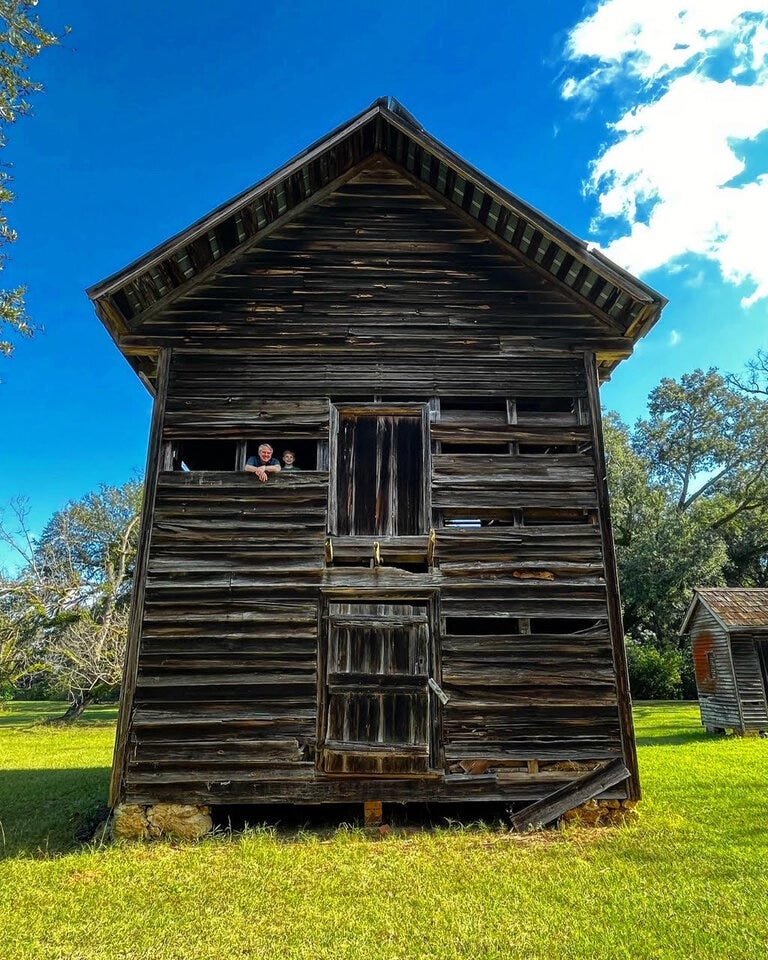Whenever I’ve had a big dream or goal in mind, especially when I was younger, I spent hour after hour (after hour, after hour) spinning a world in my head of what it would feel like when I actually got to experience the dream in real life.
In middle school, I spent every summer dreaming of what it would feel like to wear a crisp, clean Atlanta Braves jersey as I stood out in center field, waiting for balls to be hit my way in the afternoon sun. And later, after I graduated from college and was working in my first job as a reporter, I dreamed about breaking a huge story for the New York Times or the Washington Post, just like Robert Redford in All the President’s Men.
Everything was perfect in my imagined future; I knew the right thing to say, the right thing to do, and the right moment to do it in. I’d become the confident, together person I’d always wanted to be, a state of being I felt very far from at the time.
That’s what I imagined, too, the first time I trained for and ran a marathon. Though I’d been a runner for some time, trying to tackle the 26.2-mile distance was a little like an essayist trying to write an 800-page novel, or a weekend hiker trying to climb Everest. There’s a bit of a learning curve that needs to happen, it turns out!
This occurred to me over the weekend, when my 9-year-old, my wife and I went to visit my parents, who live a couple hours away from our home in Atlanta. They’re in their eighties now, so we try to take advantage of any opportunity we can to spend time with them, and to give my son a chance to learn where he came from — the people and the places.
While we were there, we traveled a little further south, to visit a friend of mine who lives nearby. His family owns a farm that sits on a few hundred acres, with huge grassy meadows dotted with massive live oaks like the one in the photo above.
My friend and his daughter gave us a tour of everything, from the old, dilapidated wooden houses that somehow still stand today to an old office building and a two-story hay barn. We climbed up to its second floor, clambering over wobbly boards and lifting ourselves up by makeshift ladders, to look out through window openings from which you easily could have fallen to the ground below.
Throughout our morning there, I noticed a pattern: my son didn’t want to try anything that seemed hard, or unsafe. It took a lot of encouraging to get him to ramble around the old buildings with us; he wanted to see us take steps on the wooden pieces we walked before he would give them a try. He didn’t want to swing too high on the tree rope swing, and he didn’t want to try driving my friend’s tractor and truck, even though we said it would be okay. (“I don’t think my daddy would want me driving,” he told my friend.)
Eventually, he ended up trying most of those things. (He even sat in my friend’s lap and steered his truck for a stretch — on dirt roads and only on the farm, of course!) What kept coming to mind as I watched him, though, wasn’t that I wished he was less afraid; it was that he reminded me so much of myself when I was his age.
Above, I mentioned what I thought accomplishing my dreams might bring. That they might bring a kind of perfection I could only imagine, a freedom from the anxiety and insecurity I was so used to when I was younger. And that once I did, I’d be like Bruce Springsteen’s narrator in “Born to Run”: “Oh, someday, girl, I don't know when, we're gonna get to that place where we really wanna go and we'll walk in the sun.”
Having a family was one of those dreams, one that came true. But for my son, this isn’t his dream. He’s starting in the same place I did all those years ago, trying to figure out this world he’s been born into. He hasn’t yet acquired the tools and scar tissue we usually pick up by the time we’re adults to help us navigate that world. He’s still at square one.
Lately, I’ve been going back to a book I read a few years ago, Brené Brown’s Daring Greatly. If you aren’t familiar with her work, she’s a research professor at the University of Houston who’s perhaps most famous for a TED Talk she gave over a decade ago, as well as for several books she has written on shame and vulnerability.
In Daring Greatly, she writes about a concept she calls “wholehearted parenting,” about how we can help our children cultivate a sense of belonging:
From the very beginning of my research on shame, I’ve always collected data on parenting and paid close attention to how research participants talked about being parented and about parenting. The reason is simple: Our stories of worthiness — of being enough — begin in our first families. The narrative certainly doesn’t end there, but what we learn about ourselves and how we learn to engage with the world as children sets a course that either will require us to spend a significant part of our life fighting to reclaim our self-worth or will give us hope, courage, and resilience for the journey.
There’s no question that our behavior, thinking, and emotions are both hardwired within us and influenced by our environment. I wouldn’t hazard a guess on the percentages, and I’m convinced that we’ll never have a precise nature/nurture breakdown. I have no doubt, however, that when it comes to our sense of love, belonging, and worthiness, we are most radically shaped by our families of origin — what we hear, what we are told, and perhaps most importantly, how we observe our parents engaging with the world.
As parents, we may have less control than we think over temperament and personality, and less control than we want over the scarcity culture. But we do have powerful parenting opportunities in other areas: how we help our children understand, leverage, and appreciate their hardwiring, and how we teach them resilience in the face of relentless “never enough” cultural messages. In terms of teaching our children to dare greatly in the “never enough” culture, the question isn’t so much “Are you parenting the right way?” as it is “Are you the adult that you want your child to grow up to be?”
As Joseph Chilton Pearce writes, “What we are teaches the child more than what we say, so we must be what we want our children to become.” Even though the vulnerability of parenting is terrifying at times, we can’t afford to armor ourselves against it or push it away — it is our richest, most fertile ground for teaching and cultivating connection, meaning, and love.
For me, training for my first marathon wasn’t only about a physical accomplishment or transformation (though it was those things too). It was an experience that allowed me to learn a new story about myself, in contrast to the one I’d told myself for so long before I ran it.
There’s a part of me that would love to help my son leapfrog over the painful experiences that will, sooner or later, come in his life. Obviously, that isn’t possible, so I have to try to be the adult I’d like him to be — and that’s something that takes effort, intention and desire.
I hope this makes sense, by the way! As I write this, it’s late at night and I worry that I’m simply talking gibberish. But I hope it comes through, and that you’ll understand what I’m trying to get across. I’d love to know if you’ve experienced the same emotions with your own family, and how you processed/handled it.
As always, keep in touch and let me know how your running is going — especially if you’re running 13.1 miles this weekend! I really, really want to hear how it goes.
Your friend,
— Terrell
Our training miles for the week
If you’re following the 12-week plan, your training is (nearly) complete. Just one more short run tomorrow, and then it’s time to run your half marathon on Saturday. Ready? You may not think so, but you are! 👏
Here are our miles for the coming week:
12-week plan:
Thursday, Nov. 17 — 3 miles/30-35 minutes
Saturday, Nov. 19 — 13.1 miles!
Sunday, Nov. 20 — Some well-deserved rest 🙌
16-week plan:
Thursday, Nov. 17 — 5 miles/50-55 minutes
Saturday, Nov. 19 — 10 miles/100-110 minutes
Sunday, Nov. 20 — 2 miles/20-25 minutes
Tuesday, Nov. 22 — 5-6 miles/50-65 minutes
Wednesday, Nov. 23 — off
10-mile training plan:
Thursday, Nov. 17 — 4-5 miles/40-55 minutes
Saturday, Nov. 19 — 10 miles!
Sunday, Nov. 20 — A nap 😴





This is absolutely beautiful! Thank you so much for taking a moment to be so vulnerable. Yes! I’ve for SURE had these moments with my family. I come from an extremely broken home and I now have a happy marriage and four children. I think constantly about whether or not I’ve done enough to break some terrible generational chains. Only time will tell. My hope is that, though I’m certainly far from perfect, that my children see that I’m always striving to grow and be better. Thank you again for sharing your late-night thoughts. <3
This really hit home. Although my children are all grown (ages 26, 23 and 21) I worry so much about the behavior I’ve modeled for them. Always enjoy your writing.